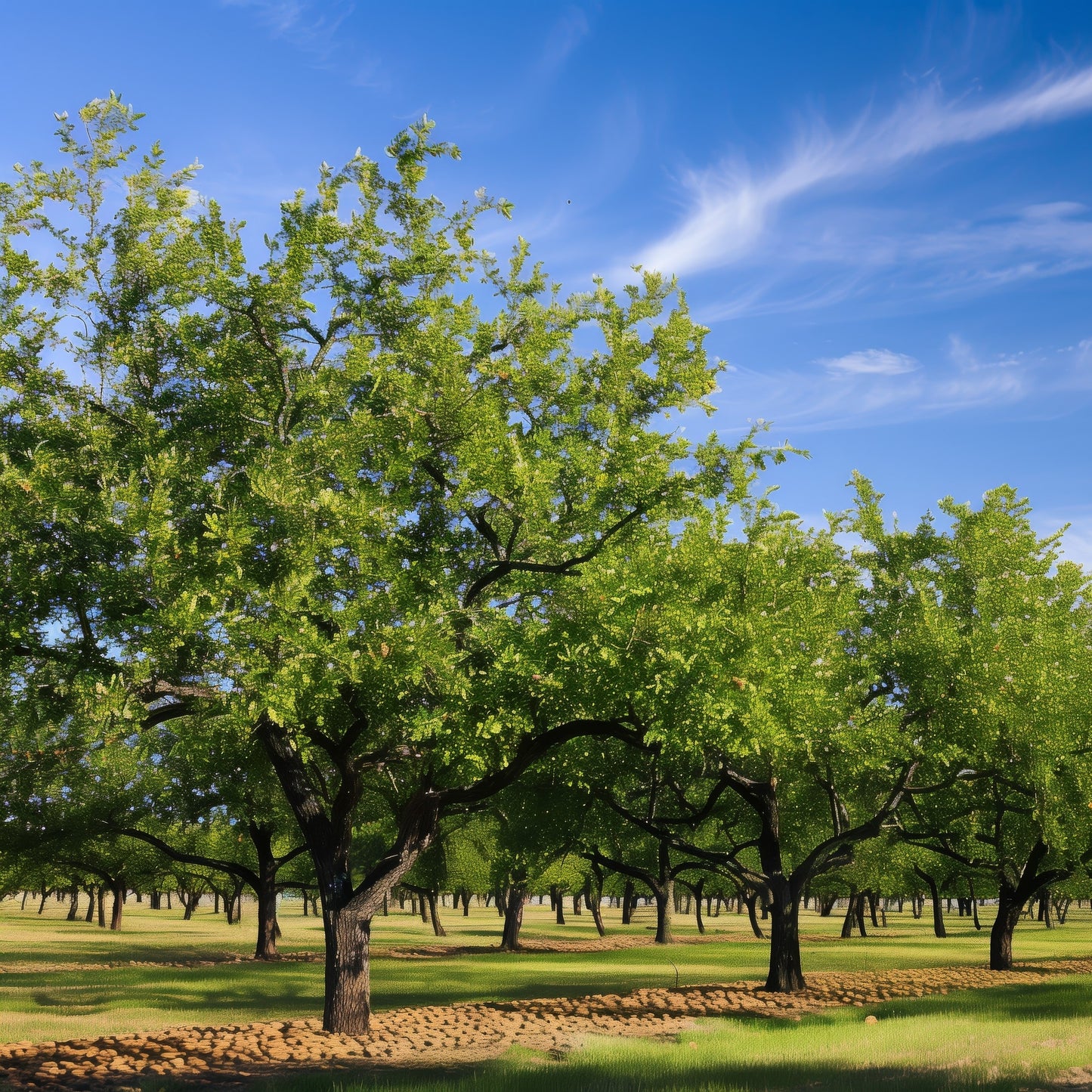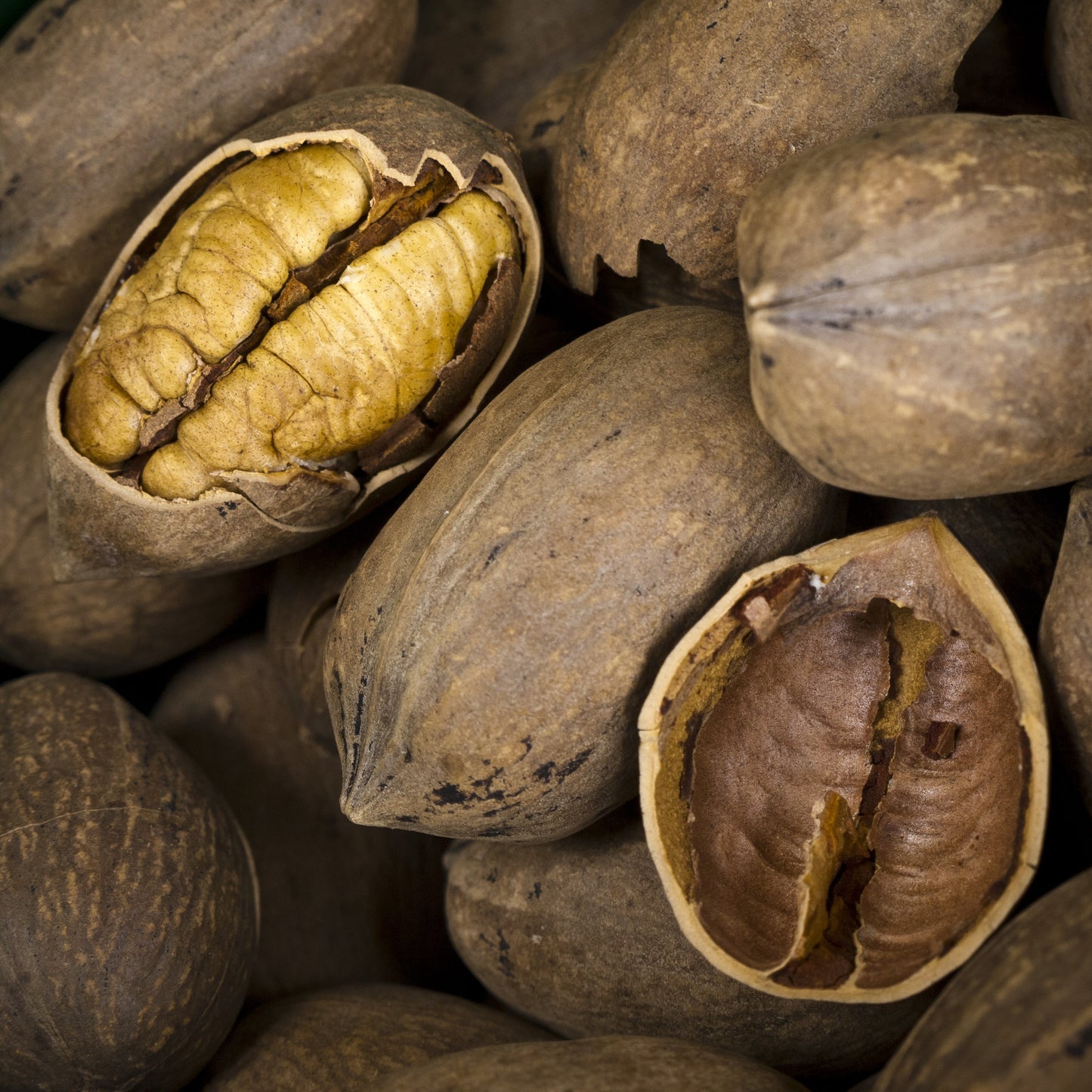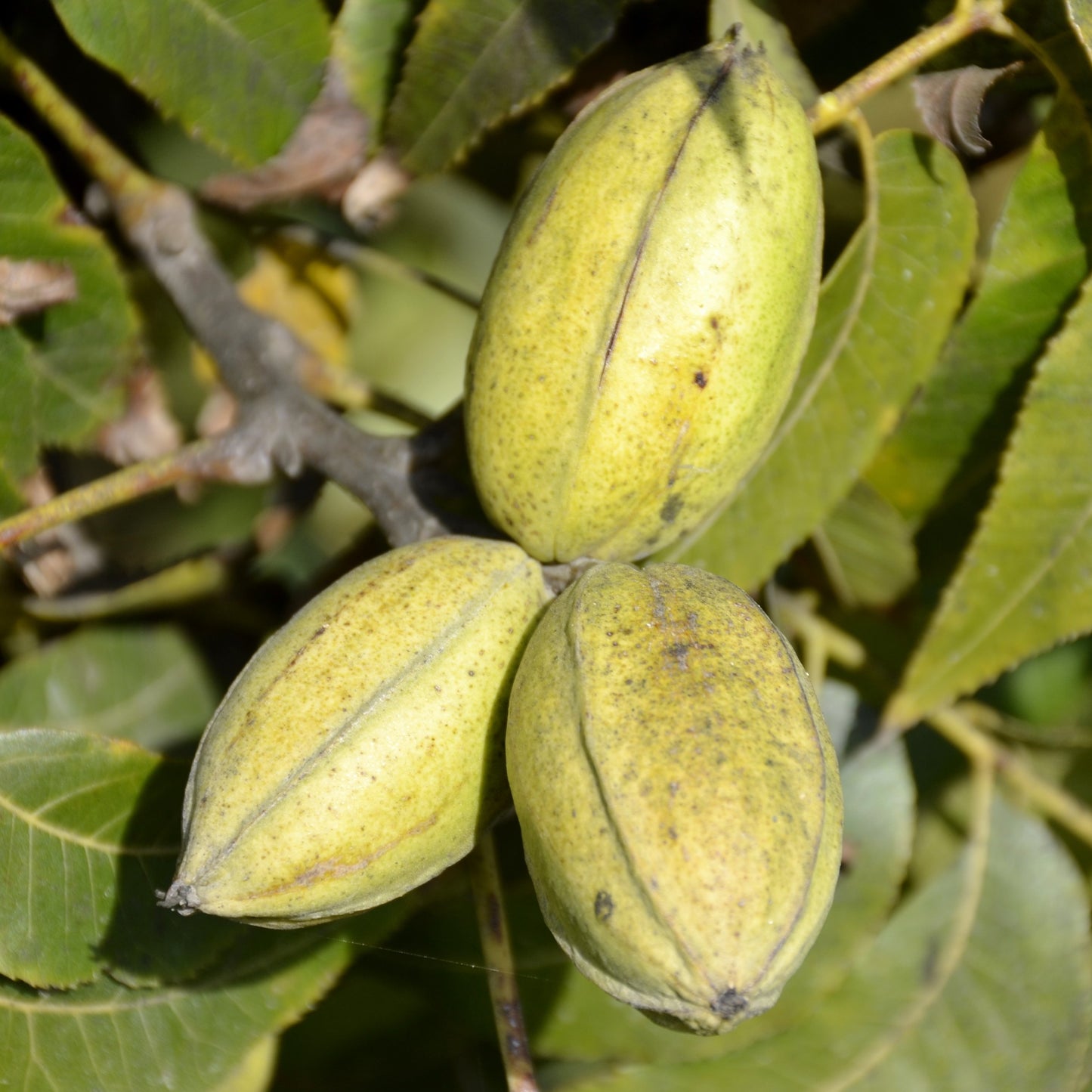Limited Quantities - Reserve Now For Fall
-
Beginner Zones 5-9

-

-

Hardy Pecan Tree
Hardy Pecan Tree
Couldn't load pickup availability
The Hardy Pecan Tree is a majestic, long-lived deciduous tree prized for its delicious, nutrient-rich pecans, stunning shade canopy, and resilience in colder climates. As one of the most cold-hardy pecan varieties, this disease-resistant and adaptable tree thrives in varied soil conditions, making it an excellent choice for home orchards, large landscapes, and sustainable food production. With its deep roots, strong wood, and ability to support wildlife, the Hardy Pecan is a valuable and rewarding tree to plant for generations.
Hardy Pecan Tree
| Attribute | Details |
|---|---|
| Variety | Rooted |
| Botanical Name | Carya illinoinensis |
| Common Names | Hardy Pecan, Northern Pecan |
| Mature Height | 70-100 feet |
| Mature Width | 40-75 feet |
| Growth Rate | Moderate to Fast (1-3 feet per year) |
| Lifespan | 100-300 years |
| USDA Hardiness Zones | 5-9 |
| Sun Preference | Full sun (6+ hours of direct sunlight) |
| Soil Type | Well-drained, loamy, sandy, or clay soils |
| Soil pH | Slightly acidic to neutral (6.0-7.5) |
| Water Needs | Moderate; tolerates drought once established but prefers moist soils |
| Flowering Season | Spring (April-May) |
| Fruit Ripening | Fall (September-November) |
| Nut Characteristics | Large, thin-shelled pecans with high oil content and rich flavor |
| Wildlife Attraction | Squirrels, deer, birds, pollinators |
| Growth Habit | Large, upright with a spreading canopy |
| Self-Pollinating? | No, requires another pecan tree for cross-pollination |
| Chill Hours | 500-1000 hours |
| Landscape Uses | Home orchards, shade tree, timber production, wildlife habitat, windbreak |
| Maintenance Level | Moderate |
Environmental Benefits
🌎 Carbon Sequestration & Air Purification – Absorbs carbon dioxide and filters air pollutants, improving environmental health.
🐿️ Wildlife Support – Produces protein-rich pecans that feed birds, deer, and small mammals, while offering nesting sites for wildlife.
💧 Erosion Control & Soil Improvement – Deep root system stabilizes soil, making it ideal for flood-prone areas and erosion prevention.
🌞 Shade Provider & Cooling Effect – Creates a large, dense canopy, reducing heat in residential and urban landscapes.
Pros & Cons
| Pros | Cons |
|---|---|
| Produces high-quality, sweet, and nutritious pecans | Requires another pecan variety for cross-pollination |
| Long-lived tree that provides generations of benefits | Slow to start nut production (can take 6-10 years) |
| Tolerates a variety of soil types and climates | Large size requires ample space for full growth |
| Resistant to drought, pests, and diseases | Drops nuts and leaves in fall, requiring some cleanup |
| Excellent shade tree with broad canopy | Not ideal for small yards due to its mature size |
Planting & Care Guide (Bare Root)
- Spacing: Plant 40-75 feet apart to allow full canopy development
- Soaking: Soak bare root in water for 6-12 hours before planting
- Planting Depth: Dig a hole twice the width of the root system, ensuring roots are level with the soil surface
- Mulching: Apply a 2-3 inch layer of mulch to retain moisture and suppress weeds
- Pruning: Prune in late winter or early spring to shape the tree and remove weak branches
- Fertilization: Apply a slow-release nitrogen-rich fertilizer in early spring to encourage healthy growth
- Watering: Water deeply 2-3 times per week during the first year, then reduce as the tree matures
The Hardy Pecan Tree (Bare Root) is a superb choice for anyone looking to grow their own pecans while enjoying the benefits of a shade tree. Whether planted for food production, wildlife support, or as a legacy tree, this resilient and long-lived tree is a worthwhile investment for generations to come.
Share






